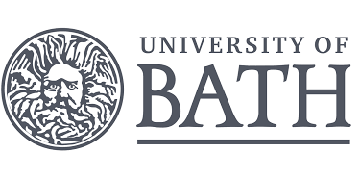University of Bath: New book from Dr Ana Catalano Weeks focuses on policy impact of gender quota laws in politics
A new book launched this week by University of Bath researcher, Dr Ana Catalano Weeks from the Department of Politics, Languages & International Studies, aims to shine a spotlight on a key contemporary issue: what has been the impact of gender quota laws on politics, policy and practice?
To date, over sixty countries have adopted gender quota laws, and more countries are considering them. In the UK, the Welsh government recently backed plans for a gender quota as part of reforms to modernise the Assembly. This will be the first law of its kind in the UK.
Set in this context, the book explores the potential policy impacts of such large-scale electoral reforms, beyond increasing numbers of women in politics. Dr Weeks’ research suggests that gender quotas can pave the way for policies that better reflect women’s preferences to support working mothers, like shared parental leave.
The book weaves together statistical analysis of party agendas and government policies with qualitative interviews gathered through fieldwork. Cross-national statistical analyses carried out as part of the research behind the book establishes correlations between quota laws and party-level agendas and national-level policies.
In addition, case studies assess the plausibility of observed statistical relationships between variables and shed light on potential mechanisms. Dr Weeks’ qualitative evidence brings together over 60 elite interviews in four countries – two of which had quota laws (Belgium and Portugal) and two similar countries which did not (Austria and Italy).
As Dr Weeks explains: “What makes quotas different from a gradual increase in women’s representation over time is that they raise the number of women across political parties, especially on the right. I argue and find that quotas lead to policy changes for issues characterised by a gender gap in preferences, especially if women agree on the importance of these issues across parties.”
The book focuses on one such issue, work-family policies. One of the largest gender gaps in preferences in rich OECD democracies exists over the issue of maternal employment: should mothers work? Dr Weeks’ analysis shows that women are more supportive of maternal employment than men, they prioritise it more, and this gender gap cuts across party lines.
This suggests that implementing a quota law increases attention to work-family concerns, like childcare and parental leave, in party manifestos, and shifts work-family policies in the direction of women’s preferences to support working mothers (including shared parental leave).
The book argues that quotas make gender more salient by giving women a louder voice within parties, access to ministerial roles, and encouraging male party leaders to compete on these now more normalised issues. Without a quota law, countries are less likely to prioritise policies that help parents balance work and family, suggests Dr Weeks.
And while they are not a panacea, the book concludes that gender quotas are one important way of facilitating congruence between women’s policy preferences and outcomes in advanced democracies.
Dr Weeks’ adds: “In debates about gender quota laws, advocates often make the argument that quotas, and more women in politics, will lead to women’s interests being better represented.
“My book provides some positive evidence in favour of that. More broadly, in the course of my interviews I often found that even those who had been adamantly opposed to a gender quota law before it passed adapted and accepted it as a positive step. I hope that this research will help to inform ongoing debates about quota laws.”

